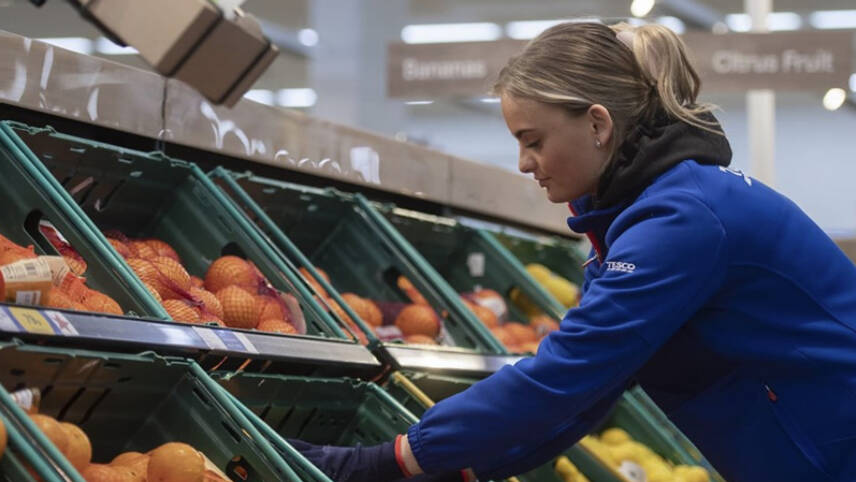Register for free and continue reading
Join our growing army of changemakers and get unlimited access to our premium content

Image: Tesco
Aldi, Asda, Co-op, Lidl GB, Marks & Spencer, Morrisons, Ocado Retail, Sainsbury’s, Tesco and Waitrose have each partnered with M2030 – a decarbonisation platform for greenhouse gas (GHG) emissions and for the sharing of climate-related tools and information.
In doing so, the retailers equip their supplier base with the tools, knowledge and resources they need to reduce GHG emissions associated with the sourcing, manufacture and transportation of products. This enables suppliers to make considerable cost and time savings.
In the past two years, M2030 has seen a significant increase in GHG emission reductions amongst grocery suppliers.
Between 2021 and 2022, the adoption of actions among grocery suppliers increased by 73%. In 2023, M2030 has – to date – seen a 78% increase on the previous year.
M2030’s climate action programme helps suppliers identify and implement opportunities to reduce their environmental impact.
Suppliers gain access to hundreds of best practice projects, a range of learning tools such as educational webinars and case studies, as well as one-to-one support services, and access to an expert partner network.
M2030 head of retail partnerships Florence Batten-Turner said major supermarkets play an “influential role” in decarbonisation, both in their own operations and through broader supply chain optimisation.
“Collective action is vital to make the changes necessary to tackle the climate crisis and we are thrilled that 10 of the UK’s leading supermarkets are working with us to deliver on their own environmental commitments,” she added.
Suppliers which are shared by retailers can save valuable time as they do not need to engage with multiple customers on decarbonisation.
In a joint statement, Aldi, ASDA, Co-op, Lidl GB, Marks & Spencer, Morrisons, Ocado Retail, Sainsbury’s, Tesco and Waitrose, said: “We cannot underestimate the scale of the task when it comes to decarbonising the grocery supply chain.
“But by empowering our suppliers to take action through our own, individual strategic partnerships with M2030, we aim to remove thousands of tonnes of GHGs from our grocery supply chains.
“We each, individually, restate our commitment to work with M2030 to reduce the environmental impacts of our grocery supply chains. This work is vital for the future of our planet, our businesses, and, crucially, our customers.”
Batten-Turner added: “We’re really encouraged to see an increase in action-adoption among grocery suppliers. It shows that collaboration among retailers, suppliers and initiatives works to drive progress.
“While this progress is significant, it’s important we see more ambition and scale in carbon reduction targets, specifically science-based targets which provide a clearly defined pathway and will help reduce the worst impact of climate change.
“To have a fighting chance of reducing emissions in the grocery supply chain, suppliers need to be equipped with the right support, knowledge and tools.”
Related news: British supermarkets work with WWF and WRAP to drive down Scope 3 emissions
Related news: WWF warns of slow progress in halving the environmental footprint of groceries


Please login or Register to leave a comment.